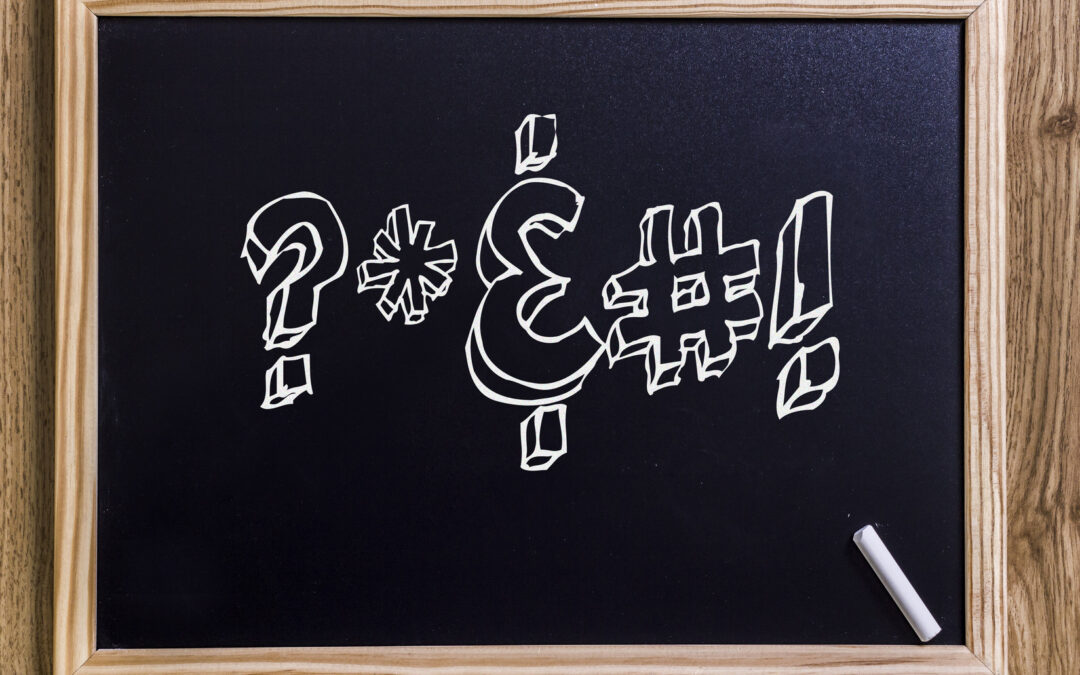Unless we are disciplined, freedom can actually weaken us. Indeed, it can make us less free. That is because freedom, at least for the undisciplined, manages only to create the space necessary to indulge their impulsivity. For this reason, undisciplined people cannot be trusted. And, if we’re paying attention, we’ll recognize there are circumstances in which we cannot trust even ourselves.
To admit this to ourselves can be difficult. No one wants to learn of their untrustworthiness, incompetence, and moral deficiencies. However, if addressing our deficiencies is painful, imagine the pain that results from ignoring them or pretending they don’t exist.
Make no mistake: life targets our moral failings. One way or another, we will be found out. Our sins, so to speak, will be shouted from the rooftops. Our problems want to be noticed. By snubbing them they become emboldened. They grow in size and complexity. Snub certain problems long enough and they will wreak such havoc on our lives that they become impossible to ignore.
It takes a tremendous amount of courage, strength and maturity to admit that we are undisciplined and therefore cannot be trusted. It takes even more power still to then take appropriate action. Generally, this requires immediately restricting our own personal freedoms.
For the undisciplined, freedom oxygenates their desire to behave impulsively. Undisciplined people are not (at least not yet) in control of themselves. Self-mastery takes time. Their natures have yet to be effectively contended with, much less overcome. Thus, if given the opportunity, their natures could overcome them instead of the other way around.
As the 20th century tragically and unequivocally demonstrated, human nature has a tremendous capacity for evil. When evil entices us, therefore, we must eliminate, by any moral means necessary, whatever space exists to act on it. We cannot allow ourselves the opportunity to behave recklessly. More precisely, we cannot allow ourselves to think we are strong enough to expose our moral vulnerabilities and still make it out unscathed. We’re not. In fact, we’re very weak, as evidenced by the desire itself.
Desire can be intoxicating. It can overwhelm our cognitive abilities and hijack the thinking part of our brains. In fact, once we are emotionally convicted, it is very difficult to appeal to reason. At the point of conviction, the only thing the thinking part of our brain wants to do is justify how we are feeling. The precariousness of our predicament cannot be overstated. We have ventured, as it were, into the lion’s den. Alarmingly, we actually believe the lion wants to love us back. With little to no effort, everything we have ever known about the nature of lions is explained away as nothing more than the silly and superstitious imaginings of the human mind. And, in our delusion, we are willing to prove it.
Most people mistakenly think that decisions are primarily made in our heads. I’m convinced (and science seems to confirm) they’re made largely in our hearts. First we feel, then think accordingly. If our feelings are lying to us we should be very careful about trusting our thoughts.
For example, fear is often irrational. Although we may feel like death is staring us in the face, rarely does speaking publically actually kill us. Nevertheless, our nervous system reacts the same to speaking publically as it does to being chased by a pack of ravenous wolves. Unless we make a concerted effort to think rationally – which, under certain circumstances, is nigh impossible – we will erroneously think instead that our internal mapping accurately represents the territory. We will then react accordingly by either freezing, fleeing or fighting. (Not necessarily a recipe for principled conduct.)
It never ceases to amaze me how people whose lives are in disarray seem to think they know best how to order the world. Their lives are frenzied and chaotic and yet they are not at all embarrassed to tell other people how to live. Their homes are in disorder and yet the ignominy of ordering the homes of others never seems to crack their thick skulls. Of course, this is just another sad example of how first we feel, then we think. And what we think only serves how we are feeling.
To be sure, the more undisciplined we are the more untrustworthy are our feelings. Ironically, the more untrustworthy are our feelings the more dominant they become in our lives. By definition, undisciplined people do what they feel like doing even when it may be counterproductive, or worse. Their emotional immaturity is on full display.
If, however, we become aware that our feelings are misleading us, we can, with our eyes opened, choose not to act on them. We can fight the feeling instead of fighting the truth. We can more effectively direct our thoughts. As we learn to master our thoughts, not only will our behavior change, but so too will our feelings. Our feelings will begin to more accurately represent the territory. Indeed, our emotional intelligence (EQ) will become an invaluable resource in discovering what’s true.
Freedom is a sacred privilege. Not everyone is worthy of it. And no one is worthy of it all the time. It isn’t true that we are always responsible, competent, honest, or disciplined. Sometimes we are anything but responsible and disciplined. The question becomes, therefore, “What do we do about it?”
If your life is in ruins, or for the parts of your life that are in ruins, limit the damage by limiting the amount of damage you can cause. Don’t trust yourself. Instead, carefully identify those individuals whom you can trust and listen to, lean on, and learn from them. I promise that such people exist. You just have to be willing to humble yourself and, almost certainly, venture outside the confines of your current circle of influence.


Recent Comments